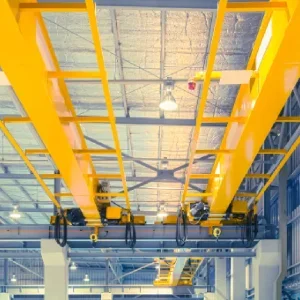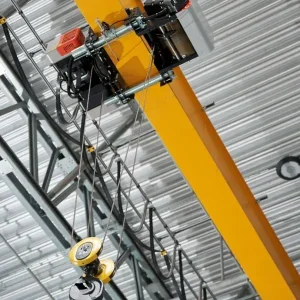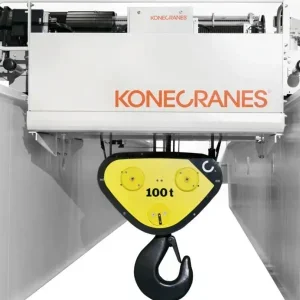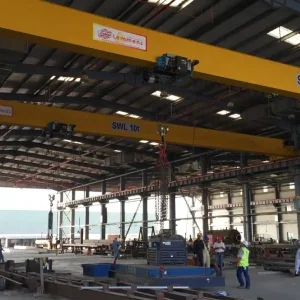Working with Kurnia Energy Engineering (KEE), Nokia’s 7705 SAR (Service Aggregation Router), extends IP/MPLS services over cellular and WLAN networks, on all the cranes across the Makassar Container Terminal (TPM).
Pelindo 4 can now monitor container crane and rubber tire gantry crane assets from its control room in real time for control and management of container cranes, for greater operational efficiency and improved safety.
“We are always looking for innovations to streamline and enhance our seaport operations, and Nokia is an important partner in helping us to achieve this,” said Josef Benny Rohy, GM, Terminal Peti Kemas Makasar Pelindo 4.
“Nokia’s holistic technology helps us to get better visibility of the crane operations through 24/7 real-time data streaming. We further believe this collaboration will pave the way for development of new business cases in the field of asset performance management.”
Nokia’s 7705 SAR supports third-party crane monitoring systems, suitable to specific customer requests. The technology acts as a wireless extension of Pelindo 4’s operations network, including monitoring of trucks, water pollutants and container identification.
KP Goh, head of Indonesia at Nokia, said this project with Pelindo 4 marks Nokia’s first entry into the Indonesian seaport and its IP/MPLS router is flexible enough to meet a variety of business case objectives, especially in asset-intensive industries.
“We are glad that forward-thinking companies like Pelindo 4 are embracing new technologies to make its operations more efficient, sustainable and safe for its workers,” said Koh.
Erwin Kurniawan, director, KEE, added partnering with Nokia has allowed them to cater to Pelindo 4’s specific requirements to digitalize its seaport operations.
“Together, we aim to enhance safety and efficiency of its operations by delivering solutions that will unlock new connectivity and automation scenarios. This will further bring many new business opportunities in the era of digital transformation,” he said.
This month, Nokia also announced it will expand its ongoing collaboration with Kalmar to combine its communications and cargo handling technology expertise in new joint go-to-market ventures, integrated solutions development and research collaboration.
“Nokia is now bringing a range of digitalisation offerings to the alliance, with particular emphasis on private wireless, to add to Kalmar’s cargo handling technology know-how. This joint approach promises significant gains in efficiency and productivity for ports and intermodal terminal operators,” said Jochen Apel, VP Transportation, Logistics and Manufacturing, Nokia Cloud and Network Services.
In the first of the new collaboration programs, Nokia and Kalmar will incorporate Nokia 4G and 5G private wireless into offering development for use with straddle carriers, automated stacking carriers and rubber-tyred gantry cranes. This will enable ports and terminal operators to increase container handling efficiency and enhance on-site safety levels.
Other near-term technical collaboration will focus on 5G research projects in Finland as well as on ultra-reliable positioning for safe acceleration of automated cargo handling equipment.
As a key component of joint go-to-market and solutions development, Nokia will provide the Nokia Digital Automation Cloud (DAC), an industrial-grade digitalization platform that provides a reliable, secure, and high-performance private wireless network with industrial connectors and edge computing capabilities on a cloud-based monitoring system.






